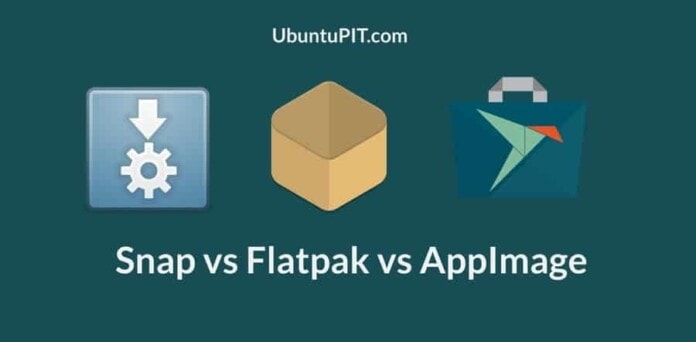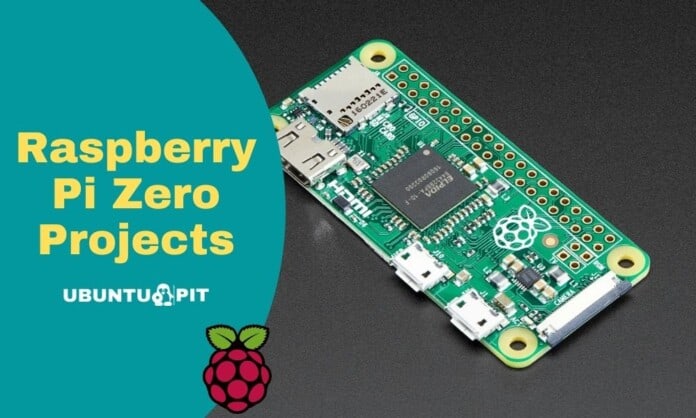Clipboard managers for your Linux system can boost up your productivity to a large extent. We all know how important the copy-paste feature in modern computing. It saves us a lot of time, and we don’t have to remember long commands in Linux. But sometimes, the default copy-paste feature is not enough, especially for the advanced users.
This is when the custom clipboard managers come into play. They can store several text and image snippets in the clipboard. You can easily manage your clipboard, such as adding and deleting entries. Some tools even give you more features like syncing with the cloud and sharing them online with friends. The most important fact is that these are tiny tools that don’t even require much computing resources to run.
Best Clipboard Managers for Linux
There are a lot of clipboard managers for Linux that are free and open-source. These can be installed with ease on any of the Linux distros. However, you won’t need all the clipboard managers. Rather you need the best one that you can rely on. Here, I have compiled a list of the best open source clipboard managers for your Linux system that you can use in your machine to speed up your workflow.
1. CopyQ
The first one in this list is CopyQ. This is a pretty handy and powerful tool for managing copied items. CopyQ is quite popular because of its cross-platform support. It provides some great features in small package sizes. I liked the visual appearance most. The features and customizations are nicely arranged in a Qt-based GUI that will be helpful.

Pros and Cons of CopyQ
+ It can store rich texts such as HTML and images apart from plain texts.
+ You can add custom meta tags and notes with every entry.
+ It supports several keyboard shortcuts and command lines.
+ You can set up the number of items in the history and manually add and sort entries.
– CopyQ can’t sync clipboard histories with third-party clouds.
– Not all the features are convenient to use for the newbies.
2. GPaste
This is a basic tool for clipboard management. It doesn’t even come with any fancy features. But it provides productivity with it’s easy to use interface. The tool is here for quite a long time and is being improved constantly. Gpaste uses a Gtk based graphical UI and a daemon in the core. It also works great with command lines.

Pros and Cons of Gpaste
+ You can configure the hotkeys based on your liking.
+ This tool can keep an unlimited number of entries in the memory.
+ It can flag special items such as passwords, files, images by tags.
+ You can enable the GNOME shell extension for more functionalities.
– It doesn’t have online syncing features built-in.
– The copied images can not be previewed in the GUI.
3. ClipMenu
This is yet another open source clipboard manager for Linux. However, the functionality is quite limited, and it doesn’t feature any graphical UI. Rather this tool uses to work in the terminal window. The main aspect of this tool is efficiency. The developers wrote just around 300 lines of code to create this awesome tool. Hence it saves computing resources to a great extent.

Pros and Cons of ClipMenu
+ You can cap the maximum number of entries to save memory usage.
+ This tool can be suspended temporarily from functioning.
+ Password managers are kept safe from this tool by default.
+ Compatible with different distros and easy to install.
– Doesn’t have a graphical UI.
– It doesn’t support rich text and media files.
4. ClipIt
ClipIt is a powerful tool developed by Christian Henzel. However, he didn’t create it from scratch. It was derived from Parellite, which is a popular tool in this category. He has made several bug fixes and features, and now ClipIt is a great contender against other powerful clipboard management software for Linux systems. This tool uses the GTK+ framework and can be built from the source code for your preferred distro.

Pros and Cons of ClipIt
+ You will get an automatic pasting feature for the last copied item.
+ This tool can be bounded with the hotkeys for easier operation.
+ Available for installation with PPA package repository.
+ ClipIt is a very lightweight tool with a smaller footprint.
– This package is not actively developed anymore.
– You will need some dependencies to get all the features.
5. Parcellite
This is a basic yet powerful clipboard management tool for Linux. The developer wanted to provide only the basic features without any glitches and bugs. He succeeded in this matter. This is a very well known tool for managing copied items. Yet several tools are providing much better UI and experience. But if you are looking for a reliable tool, you can pick this up.

Pros and Cons of Parcellite
+ It runs in the background as a daemon to catch all the entries.
+ You can organize the snippet history and browse through it.
+ It uses the powerful GTK framework for building the GUI.
+ You can customize the appearance of the listing.
– The user interface is fundamental and not very convenient to use.
– You will need intltool and libglib to run this software.
6. Diodon
Diodon is an awesome productivity tool for Linux. This is, in fact, an open source clipboard manager that is free to use. You can use this on any Linux distro. However, it works best with GNOME desktop environments. It doesn’t have a ton of features. But I liked the seamless integration with the default clipboard manager of Linux.

Pros and Cons of Diodon
+ It syncs the last copied entry with the default copy-paste feature.
+ It supports copying images along with plain texts.
+ You can configure different parameters based on your requirements.
+ The functionalities can be extended with plugins.
– Not every option is built-in with the main package.
– You won’t get much support from the developers.
7. Klipper
Klipper is yet another open-source clipboard management tool for Linux systems. This is a tool developed for the KDE desktop environment. What I like about a tool from the KDE family is the clean and polished UI. Klipper is no different. It has all the necessary features of a good clipboard manager. On top of that, the functions are nicely arranged, and you will get a lot of flexibility.

Pros and Cons of Klipper
+ You will get a tray ion that launches the copied items.
+ QR code generation from the clipboard items is a convenient feature.
+ The pop-up time and max number of entries can be configured.
+ You can write your scripts to extend the functionalities further.
– Adding entries manually or deleting is that convenient.
– It not good at copying rich text items that have advanced formatting.
8. Glipper
Glipper is yet another powerful tool. This is also an open source project that can be availed free of cost. Though it is a GNOME utility, you can use this on other distros that have a GNOME desktop environment. Originally, it was an applet and had basic functionalities. However, now it has got amazing features like CopyQ and GPaste. And the most important thing is that it runs natively without putting much stress on your system.

Pros and Cons of Glipper
+ This tool is compatible with any Linux distro.
+ The UI is super minimalistic with the necessary features.
+ There is a clear call button for getting rid of all the copied items.
+ You will find several plugins that work with it.
– It doesn’t work on other environments apart from GNOME.
– Doesn’t provide sharing or cloud backup service.
9. Clipman
This is an open source tool that comes with the Xfce desktop environment. It helps you to overcome the limits of the default Linux clipboard. However, don’t expect a lot of fancy features or a gorgeous GUI. This is quite a basic tool that lets you manage the clipboard history. However, it works also with the command line interface. The tray icon helps you to view and add new entries.

Pros and Cons of Clipman
+ It has got a fuzzy finding option from the clipboard history.
+ There is a hotkey (Ctrl) to bypass this tool while copying.
+ It will save the history of the previous session.
+ You can set up custom actions for more flexibility.
– It can only store a single image in history.
– This tool can only manage the default copy-paste feature.
10. Pastie
This is a great little clipboard manager for Linux written in Python. It uses the same old Gtk+ framework building the user interface. You can use it with both GUI and command lines. Pastie has a daemon always running in the background to catch the texts copied. You can interact with history by using the GUI window. It is very power efficient, which is a great deal for a tool that runs all the time.

Pros and Cons of Pastie
+ No need for additional dependencies rather than the latest Gtk framework.
+ It supports rich text formats and images.
+ You can customize it for boosting up productivity.
+ This tool forces certain applications not to clear the clipboard on exit.
– Pastie doesn’t have any pre-built packages.
– The functionality is pretty basic and limited.
Final Thoughts
Some Linux distributions come with powerful and customizable clipboard managers. If you already have a default clipboard manager that serves you well, you don’t need to install any of these open source clipboard managers. But if you are professional and have to use the copy-paste feature a lot, you can consider using them. However, if you know a tool that provides more features than these, you can comment below to let us know. I would love to feature that.



Clipcat, an alternative to clipmenu. It is written in Rust and supports both X11 and Wayland.
https://github.com/xrelkd/clipcat
I really recommend CopyQ cus it can store large amount of data and MIME-types. It’s just wonderfully developed!.
Keepboard, requires Java, but it is cross-platform and works fine on all Linux desktops too.